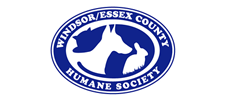Animals and Us: Research, Policy, and Practice Conference
October 11-13, 2018
University of Windsor
Windsor, Ontario, Canada
The University of Windsor sits on the traditional territory of the Three Fires Confederacy of First Nations, comprised of the Ojibwa, the Odawa, and the Potawatomi.
Non-human animals play a large role in the economic, social, cultural, and physical landscape of western countries. They are used in agricultural production, the creation and testing of medical technologies, the manufacturing of clothing and consumer goods, and sports recreation. Animals not only play a significant role in the economy and public life, they are also fundamental to domestic life. It is estimated that approximately 7.5 million households in Canada alone contain companion animals (Oliveira, 2014). These animals do not just provide companionship; they play a pivotal role in promoting the psychological health, well-being, and rehabilitation of humans. From the implementation of animal therapy at the Edmonton airport (Klinkenberg, 2017) to the increasing numbers of comfort animals on university campuses (Ross, 2016) and the introduction of canine therapy programs in prisons (Donato, 2017), the recognition that the human-animal bond promotes human wellness is permeating public spaces; moreover, people are increasingly asking what can we do for animals instead of simply what can they do for us. This shift in public consciousness has implications not only for the individual human beings whose lives are improved through connection with animals but also for the animals involved, the institutions with a vested interest in the (ab)use of animals, and those seeking evidence-based social policies to guide program implementation and professional practice to improve human and animal lives.
Nonetheless, there is continuing disagreement over what obligation we have to animals. Scholars embracing an animal welfare perspective contend that animals can be used instrumentally to meet human needs but that humans have a moral obligation to act responsibly and humanely to minimize the pain and suffering caused to animals in these endeavors (Grandin, 2008). Scholars embracing an animal rights or abolitionist perspective contend that animals have interests distinct from those of humans and, as such, human needs cannot be assumed to always be paramount over those of animals (Regan, 2003). The complexities of these debates have been implicated in scholarly literature in law, the humanities, the bio-medical sciences, and the social sciences and have created deep divisions among activists and practitioners espousing diverging perspectives. As a result, despite interdisciplinary and inter-sectoral concern about animals, silos exists among those in scholarly, activist, and professional communities that often serve to reinforce differences rather than build bridges through positive mutual exchange.
The Animals and Us: Research, Policy, and Practice conference seeks to facilitate transdisciplinary and interdisciplinary dialogues among researchers, scholars, activists, artists, practitioners, students, and community members of various ideological persuasions to inform, ignite, and inspire enriched public and scholarly discourses on the issues of Animals and Us. The conference will feature submissions from all theoretical, philosophical, methodological, and disciplinary positions and practice orientations within the broad fields of human-animal studies, (critical) animal studies, and anthrozoology.
Attendance is free and open to the public. Advanced registration is required.
Animals and Us: Research, Policy, and Practice is supported with funding from the Social Sciences and Humanities Research Council.





